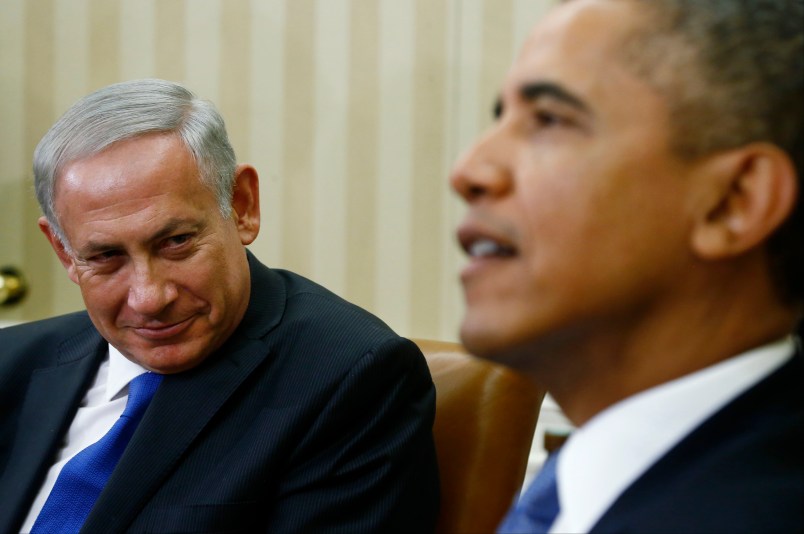President Barack Obama emphasized Monday that the American-Israeli relationship should not become partisan, even as tensions escalate over Israeli Prime Minister Benjamin Netanyahu’s upcoming speech to Congress.
Obama didn’t directly address a reporter’s question about congressional Democrats saying they will boycott the speech, which House Speaker John Boehner invited Netanyahu to make without consulting the White House. But he was adamant that Israel not become a partisan wedge issue, as some are worried it is becoming in the wake of the speech flap.
The president also repeated that he wouldn’t meet with Netanyahu during his visit to Washignton, D.C., because of the Israeli elections two weeks after the March 3 speech.
“I think it’s important for us to maintain these protocols because the U.S.-Israeli relationship is not about a particular party,” Obama said during a joint press conference at the White House with German chancellor Angela Merkel. “This isn’t a relationship founded on affinity between the Labor Party and the Democratic Party or Likud and the Republican Party.”
“This is the U.S.-Israeli relationship that extends beyond parties,” he continued, “and has to do with that unbreakable bond that we feel, and our commitment to Israeli’s security and the shared values that we have. The way to preserve that is to make sure that it doesn’t get clouded with what could be perceived as partisan politics. Whether that’s accurate or not, that is a potential perception, and that is something that we have to guard against.”
Obama did acknowledge real substantive differences with Netanyahu over the international negotiations with Iran over its nuclear program, but urged patience. He had already threatened to veto any new sanctions on Iran in his State of the Union address last month.
Vice President Joe Biden is not attending Netanyahu’s speech on Iran — his office says he will be traveling abroad — and dozens of Democrats have threatened to boycott it. In retaliation, a Republican Jewish group has pledged to “make sure that people are aware” if Democrats skip the speech.






